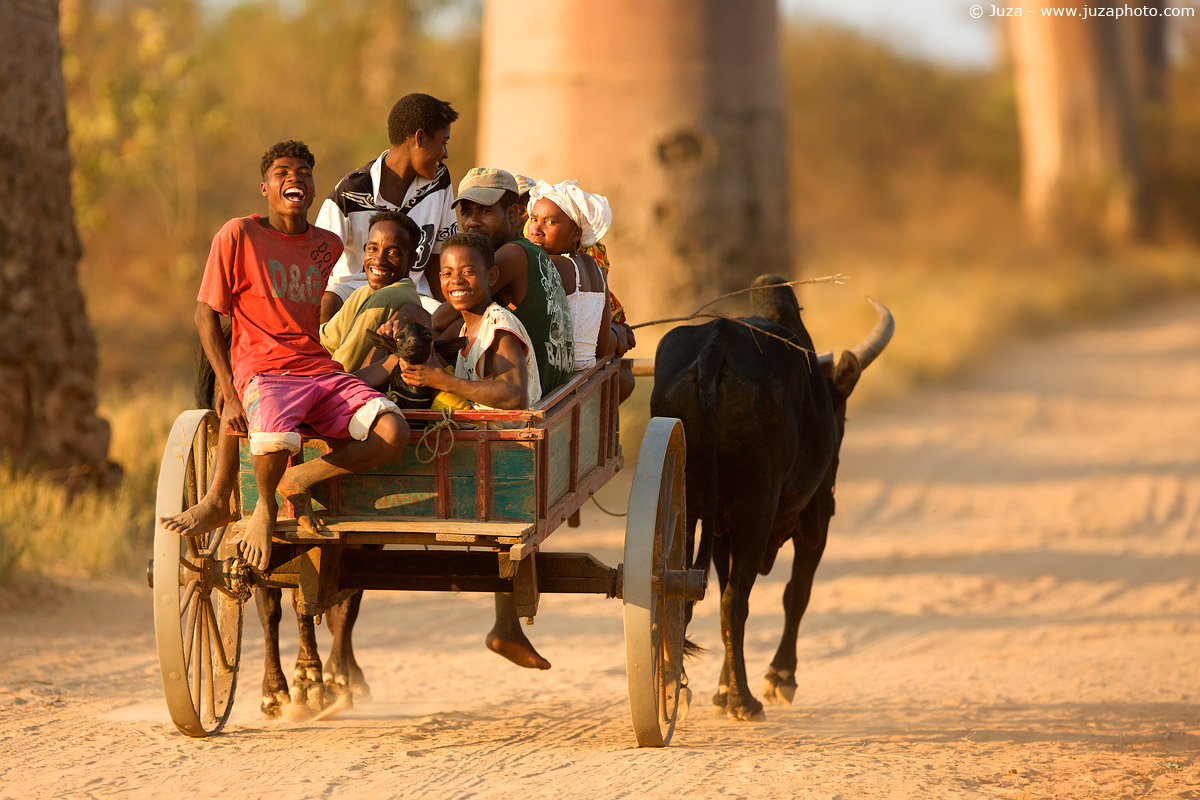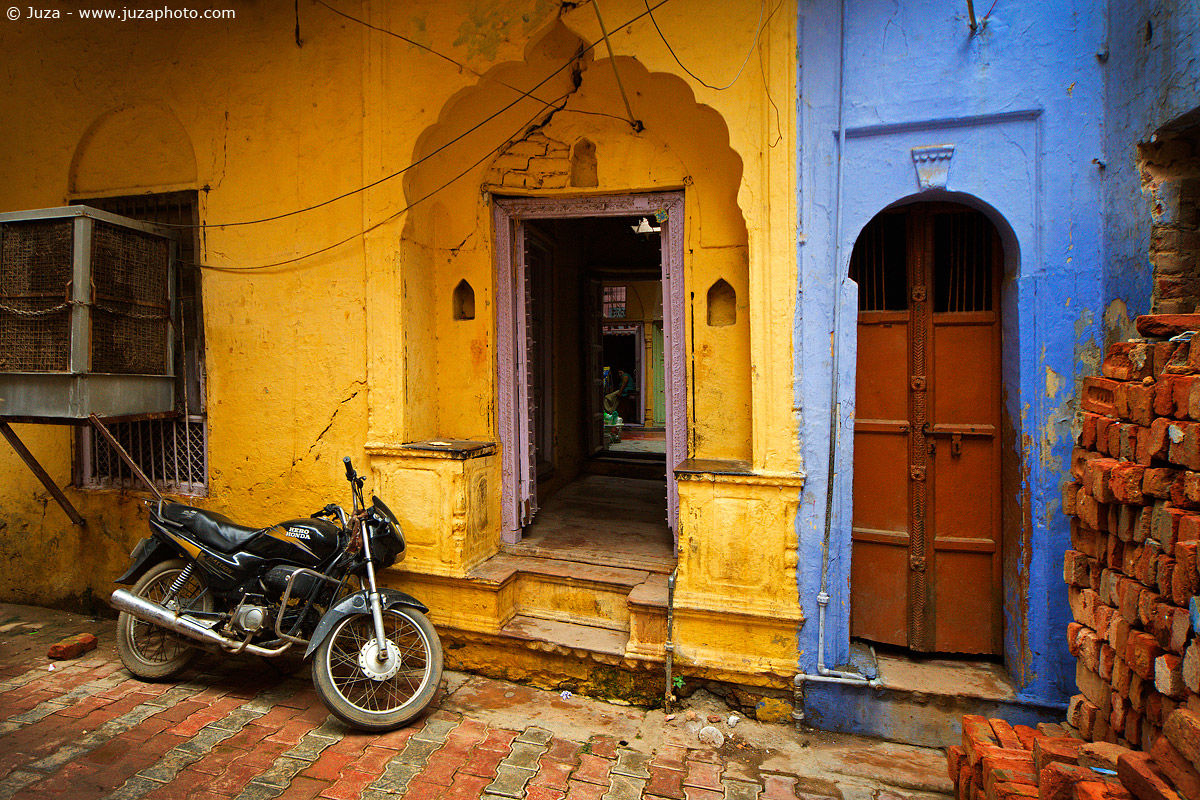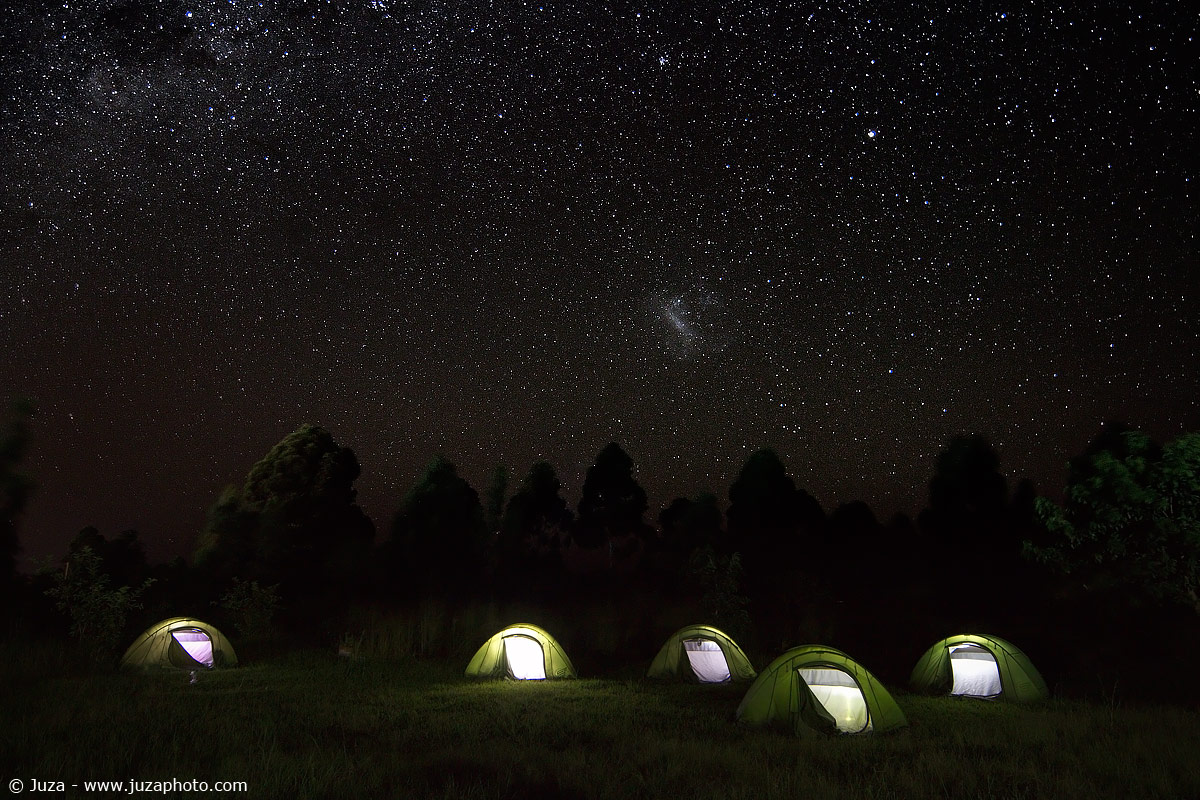Travelling with little money
Travelling with little money, text and photos by
Juza. Published on 19 Maggio 2014; 0 replies, 9285 views.
Sometimes people ask me how to I manage to do several trips every year. Nature photography don't give a lot of money: the trick to travel a lot is... to reduce the expenses of the trips :-) With some spirit of adventure and good information, it is actually possible to do many trips without much money: in this page, we will se how to reduce as much as possible to costs of a trip.

Choosing the destination
The first step for the poor traveler is to choose an "inexpensive" destination. It does not mean "near to home": actually, many distant and exotic countries are much cheaper than nearby places... the majority of European countries are expensive, while countries as Malaysia, Argentina, India (just to remember some places that I have visited in the past years) have much lower prices for food and accommodation. Internet is a great resource, and you can use the web to find all the info that you need, included the costs in the country that you want to visit; a good start is
Numbeo cost of living.
You should not underestimate the importance of
exchange rates. For example, in mid 2007 the exchange rate between Euro and Argentine Peso was about 3.7 Pesos per 1 Euro; in early 2010, when I did my trip to Argentine, the rate was about
5.7 Pesos per 1 Euro. In other words, by visiting the country when the exchange rate was favorable we spent about 40% less money... that's a lot!
Other things to consider is that some countries requires a visa that can be relatively expensive (for example, the tourist visa for India is 65 €). Last but not least, some countries have very high criminality rates or dangerous political situations, so they are not suitable for the independent traveler.
Airplane, car, train, ferry boat: choosing how to move
If you have chosen a distant destination, you will have to take one or more
flights. Usually I don't recommend to buy the ticket directly from an airplane company, because you can get much lower prices from plane search engines, as Edreams (
www.edreams.com). There are other search engines so you can check various places, but be sure to buy your ticket for a reputable site, otherwise you may risk to lose money and trip. If possible, I recommend to choose flights in the week, instead of weekend - usually Saturday and Sunday are 10-15% more expensive than other days. For more information about this topic, I have written a detailed article about flying:
air travel tips.
Booking at the last moment is rarely a good idea: usually, if you book with 2-3 months of advance you will get the best prices. Sometimes even choosing one day instead of another, or a different departure airport instead of your first choice, can make a big difference in price: spending some time to evaluate all possible options may save you a lot of money. For example, when I traveled to Malaysia, I spent 550 € from the flight Milan-Kuala Lumpur; if I had chosen a two days earlier departure the price would have been more than 900 €. Flight prices varies wildly, be sure to try all options!
Check the carry-on and luggage weight and size limits, to avoid paying high additional fees. For me it has never been a problem, since my carry-on backpack with all photo gear weights about 8-9kg (the limit for most companies is 10kg), and the backpack that I use as main luggage bag with clothes, tripod and so on weights about 10 kg (the limit usually is 20kg).
If you travel alone,
renting a car is generally very expensive, while if you can share the costs with 2-3 friends it can be a good way to travel. Anyway, the prices varies a lot from country to country (for example, in Malaysia it is relatively cheap, while in Argentine it is very expensive); there are also big differences between the various companies, so I recommend to check the prices on all major companies, as
Hertz,
Alamo,
Europcar,
Avis,
Budget,
Enterprise and others. Nearly all companies offer an insurance for an additional small fee; even though I don't like insurances, I recommend to get it, because even if you are a prudent driver in many countries the people drive like crazy, so it is easy to scratch the car and if you don't have the additional insurance, the rental company may charge you a lot of money.

If your destination is not too distant from your home country, you may choose to travel with
your own car. This is my favorite choice when I travel in Europe; it allows to avoid the costs of flights and renting, you have more peace of mind and you don't have limitations of luggage. If your destination is more than 1000 kilometers away, you may have to evaluate if the highway fees and fuel expense are not higher than flight+rental, but generally your own car is always more convenient, unless you own a Lamborghini :-)
An example: in the trip to France I did about 3500 kilometers, with an average fuel economy of 12km/liter. At that time the gasoline price was about 1.4 €/liter, so I spent 410 € of fuel, in about 11 days. If I did not use my car, I'd have spent about 90 € of plane, 70 €/day of car renting and about 150 € of fuel, for a total of 1000 €. With a car that has better fuel economy - nowadays many cars do even 20-25km/liter, it is possible to do a similar trip with an expense of about 300 €... one third the price of flight+rental!
Travelling by
train or bus is generally slow and far from comfortable, in particular in third world countries, but it can be very cheap. During the trip in India, we used train instead of plane to travel from Delhi to Varanasi and then to Calcutta, and we spent about 1/5 of the price of air travel! Even in Europe, it is possible to travel by train at very low prices by buying an InterRail pass:
www.interrailnet.com. Another place where we preferred to use bus instead of car is Argentina, where car rental is expensive and bus offer a good low-price alternative.
For a couple of trips (Morocco and Greece), I have chosen
ferry boat to reach the destination. I recommend to travel by boat if you want to use your own car, but you can't or you don't want to drive to destination; sometimes it may allow to save much money. An example: from Italy to Morocco there are about 2500 kilometers; we spent 400 €/person for the ferry boat trip from Genova to Tangeri, and this price includes the transport of the car. If we had driven through France and Spain to reach Morocco, with the horrifying 4.5km/liter fuel economy of my friend's Toyota Land Cruiser, the expense would have been 1550 €, that means 780 €/person. If we had taken a flight and rented a car, the expense would have been about 160 € for the light, and about 90 €/day to rent a 4x4 (they are pretty expensive to rent), for a total of 1100 €/person (three weeks trip).
Last, traveling by more unusual ways as
motorbike, mountain-bike or even by foot can drastically reduce or even eliminate the cost of transportation, but it requires some preparation and it may not be possible to do everywhere. Motorbikes have goodbfuel economy and they are a fascinating way to travel, but you may have more expenses for accommodation, while if you travel by car you can sleep in the car. Mountain bike or trekking are a cost-zero option, but generally you will need a flight to reach your destination.
Hotels, hostels, tent: choosing your accommodation
For the traveler on a budget,
hotels may not be the best option, but the prices varies a lot from country to country: for example, here in Italy it is difficult to find a room for less than 50 €, while in other countries the prices are way lower... in some places I have paid as little as 1.5 €/night! If you are going to plan in advance the itinerary of your trip, you can search the cheapest hotels on internet: sometimes I use
www.hotels.com, a great hotels search engine, that allows to find hotels all around to world and to make your online reservation.
Whenever possible, I prefer to stay in
hostels. Hostels are generally much cheaper than hotels (for example in Argentine we found some cheap hotels at about 35 €, while a bed in an hostel shared room cost about 7-8 €). Other than price, hostels tend to have a more friendly atmosphere, and they are a great way to meet other people. Of course, it is a very different type of accommodation: you don't have your own room, but you share the room with other persons that you don't know; usually there is no toilet or shower in the room, all toilet/showers are in a common area. Most rooms have a small closet with lockers where you can put your photo equipment and other expensive stuff.
Sleeping in
tent is a cost-zero or low cost option, but it is not my favorite choice, because it often is very uncomfortable. With 5-10 € you can place your tent in a camping; the prices are low in all the world. In most countries it is forbidden to camp in the wilderness, outside camping sites, but if you do it with some attention it is rare to get caught and fined. That said, generally it is better to do the small expense of staying in a authorized campsite; it is safer and you have toilets, showers and sometimes other services.
Personally, if I want to go really cheap I prefer
to sleep in the car. In many campsites you can sleep in the car at the same price of a tent or camper; otherwise you can just park your car somewhere and sleep there. In theory it is illegal in most places, except for Norway and few other countries, but generally it is tolerated. Again, I recommend to do it with intelligence: don't do it in dangerous countries, choose a safe place to park, respect the environment and leave before sunrise. With some cars, it can even be quite comfortable: for example, in the trip to Morocco and to Greece we had a modified Toyota Land Cruiser where all rear seats had been removed and replaced with an area for sleeping and cooking.

Other ways to save money
An essential thing to make your trip cheaper and more enjoyable is to find some travel mates: usually, a small group of 2, 3 of 4 persons is the ideal number. Many costs (car, fuel, hotels) can be shared, and overall the expense may get from 30% to 50% lower, depending by the trip. With the exception of a couple of trips, I have done all my trips with at least 1-2 travel mates, it is a much nicer experience! I prefer to avoid, instead, large groups. If you want to find some travelmate and your friends are not interested, internet offers a lot of forums where you can meet other travelers.
Other than paying attention to transport and accommodation, another way to reduce the cost is to avoid the unnecessary expenses. In some trips with the jeep, I brought the food from home and we cooked by ourselves, eliminating the cost of restaurants; in other trips I didn't carry food, but I bought in in local markets, that is way cheaper than going to restaurant. Another expense that I often avoid are souvenirs: I prefer to bring home pictures and good memories rather than things, unless I find something really great (but it does not happen often).
Phone fees to call home from foreign countries are usually pretty high: try to limit the use of phone, and if possible I recommend to look for some special plan or option for travelers. For example, here in Italy the operator "Wind" offers special options to call from other countries for just 5 €, and if you use a lot the phone you can even save hundred of Euros (it not advertising, I have had many occasions to verify that the advantage is real).
A guide book, as the famous
Lonely Planet guides, is a great help to find cheap places to sleep, interesting places to visit and overall it will help a lot in your travel: I always carry with me the LP guide of the country that I am visiting. Other than that, it is important to know a little of English and/or other widely used languages, to interact with local people and to get useful suggestions. (you can find some help in the
useful phrases page)
My last advice is to be a bit flexible in the economy of your trip: reducing expenses is a very good thing, but sometimes if you have to trade safety or good opportunities for a small saving, maybe it is not worth it ;-)
Replies and comments
What do you think about this article?
Do you want to tell your opinion, ask questions to the author, or simply congratulate on a particularly interesting article?
You can join the discussion by joining JuzaPhoto, it is easy and free!
There is more: by registering you can create your personal page, publish photos, receive comments, join discussions and you can use all the features of JuzaPhoto.
With more than 258000 members, there is space for everyone, from the beginner to the professional.

 JuzaPhoto contains affiliate links from Amazon and Ebay and JuzaPhoto earn a commission in case of purchase through affiliate links.
JuzaPhoto contains affiliate links from Amazon and Ebay and JuzaPhoto earn a commission in case of purchase through affiliate links.